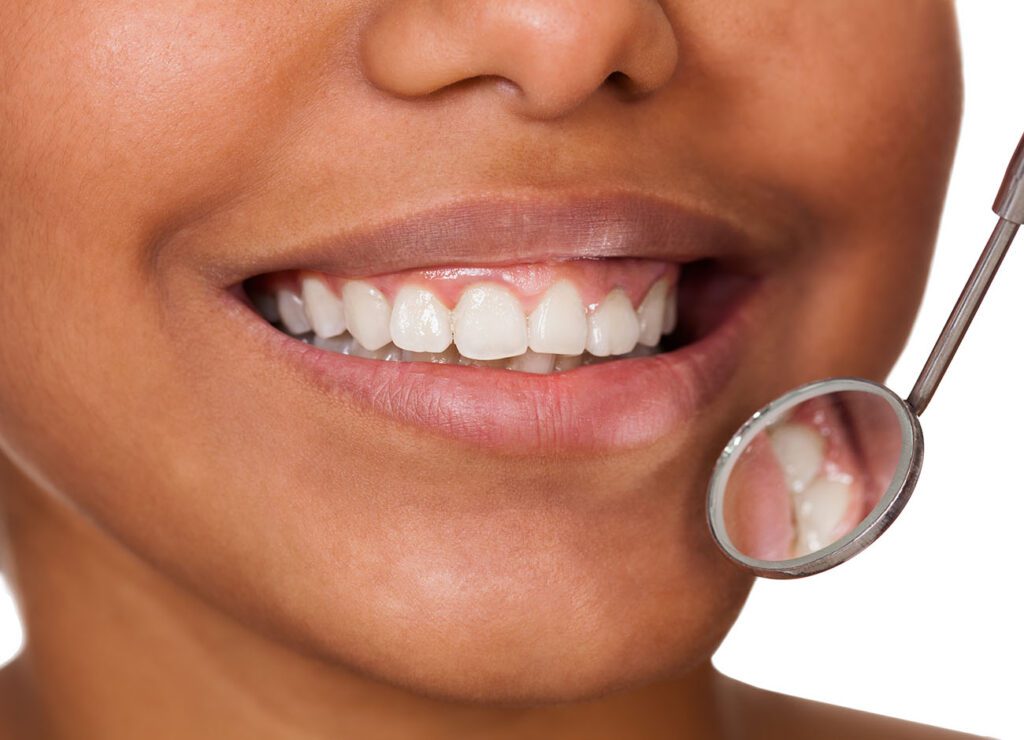Healthy gums are the foundation for a healthy mouth. Our dental care team spends a considerable amount of time with patients. We educate them on gum health and how it impacts their overall health. Periodontal disease treatment is a restorative dentistry service in our Philadelphia, PA, office. This treatment can address the signs and symptoms of gum disease and help preserve tooth structure.
Gum disease is one of the most common diseases among Americans, affecting as many as three out of every four adults. Not only is it bad for your oral health, sometimes even leading to tooth loss, but it is also bad for your overall health. Numerous studies have established a link between gum disease and chronic diseases like diabetes, stroke, and heart disease. In addition, gum disease increases risks for pregnant women, such as premature birth and low birth weight.
Dr. Conover offers a strong periodontal health program that includes prevention, diagnosis, and treatment of gum disease. As a cosmetic dentist, Dr. Conover can also address cosmetic gum concerns. He treats common cosmetic concerns, such as a gummy smile, which causes teeth to look short or asymmetrical.

Causes & Symptoms of Gum Disease
One of the leading causes of gum disease is plaque build-up. Plaque is a sticky film made of bacteria that forms in the mouth. It can build around the gum line and between teeth.
Over time, plaque hardens and turns into tartar. Tartar can irritate the gums and lead to an infection. Bacterial buildup can damage the gum tissue and the underlying bone. The only way to remove the plaque and tartar from hard-to-reach places is with regular dental cleanings at our Philadelphia dentist’s office.
There are many contributing factors to gum disease. Patients with chronic conditions such as heart disease, diabetes, and pregnancy are more vulnerable to gum disease. Inflammation and changes in hormones can increase gum sensitivity. Other contributing factors may include teeth grinding, tobacco use, and poor nutrition.
Common signs of gum disease to look out for include:
- Red, swollen, or sore gums
- Bleeding gums
- Receding gums
- Loose teeth
- Mouth sores or cuts in the gum
- Bad breath
As soon as you notice changes in your gum health, contact our office. While early stages of gum disease are reversible, it’s impossible to fully reverse moderate and advanced gum disease.
Stages of Gum Disease
There are several stages of gum disease. Knowing these stages and your symptoms will help us determine the right treatment for you:
- Gingivitis: Also known as gum inflammation, this is the first stage of gum disease. You can experience bleeding and irritated gums during this stage. A good oral hygiene routine and professional cleanings can reverse gum inflammation.
- Slight Periodontal Disease: You will experience increased pain and discomfort as gum disease develops. The gums will begin to pull away from your teeth during this stage. Regular deep cleanings are required to treat gum disease.
- Moderate Periodontal Disease: As gum disease progresses, you will notice deep gum pockets and chronic gum pain. It’s also common to experience bad breath.
- Advanced Periodontal Disease: You will need surgery if you have advanced gum disease. Teeth loosen, and you can lose your permanent teeth at the final stage of gum disease.
Periodontal Therapy in Philadelphia, PA
Dr. Conover may offer several treatment options depending on your gum disease symptoms. You will benefit from professional cleaning and oral hygiene instruction if you have early signs of gum disease like gingivitis. Bleeding gums are easily reversible with regular cleaning.
However, you may benefit from deep gum cleaning if you have more serious gum disease. Scaling and root planing are routine cleanings we use together. We provide these cleanings for patients with chronic gum problems.
Before this cleaning, we use a dental anesthetic to make the procedure more comfortable. We begin by removing bacterial buildup from the gum pockets. Then, we remove the buildup from the tooth roots. We will return to the gums to place antibiotics in the gum pockets.
It’s normal to experience gum sensitivity following this treatment. Ultimately, deep cleanings will remove the bacteria that create gum pain and inflammation. After your gum cleaning, gently brush and floss.
If you have advanced gum disease, you may require surgery. You may also need more advanced treatment, such as bone grafting, gum grafting, or other procedures. In all cases, the earlier the problem is diagnosed and treated, the more predictable and successful the result will be.
How To Prevent Gum Disease
As with most chronic conditions, prevention is the best defense against gum disease. Your visits with us will include a periodontal screening to check for signs of gum disease. In addition to professional care, you should have a healthy, strict at-home health care routine. This routine should include brushing and flossing after meals, a healthy diet, and maintaining a healthy weight.
If you have diabetes, maintain a healthy blood sugar. Additionally, if you have current heart problems, work with your doctor to keep these problems in check.
Gum Disease FAQs
Learn more about gum disease with answers to these commonly asked questions from patients:
What can you not do after a periodontal treatment?
After periodontal treatment, we recommend avoiding eating and chewing until any sedation or anesthetic wears off. You should also avoid hot beverages for at least 24 hours.
What is the first stage of gum therapy?
A dental cleaning is the first step in any gum therapy. During the cleaning, your dentist will remove the first layer of plaque. Then, she will prepare the teeth for the rest of the process.
How painful is gum treatment?
Gum treatment is not painful. While you may experience minor discomfort, there should be no pain. We may use a local anesthetic to ensure you do not feel any pain and are comfortable throughout treatment.
Receive Gum Treatment Today
Receive periodontal therapy in Philadelphia, PA, from dentist Dr. Conover by calling (215) 395-6076. You can also schedule an appointment online. Let us know if you have current gum problems or questions about treatment. We’re here to help you.
